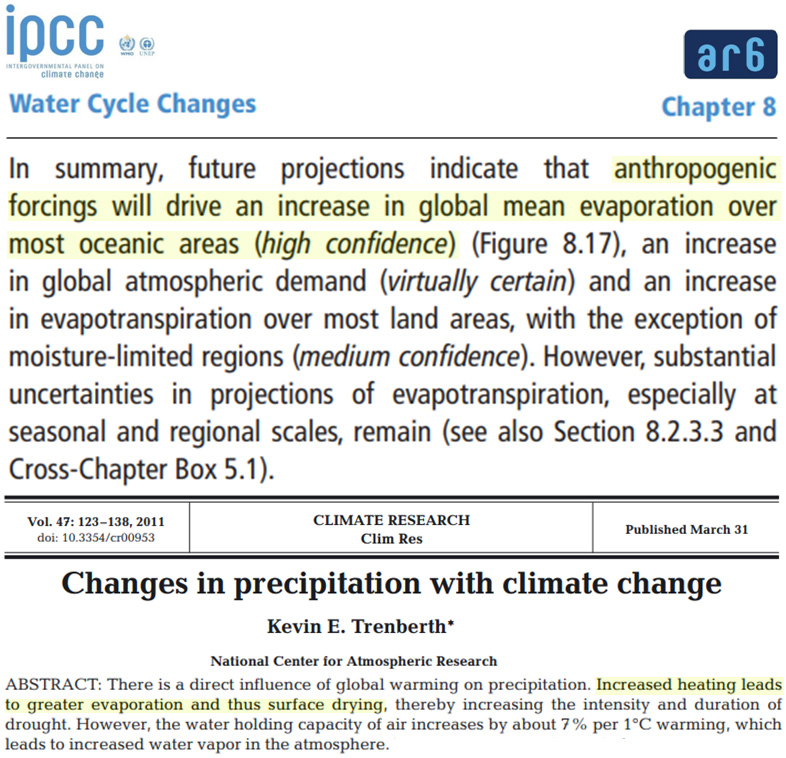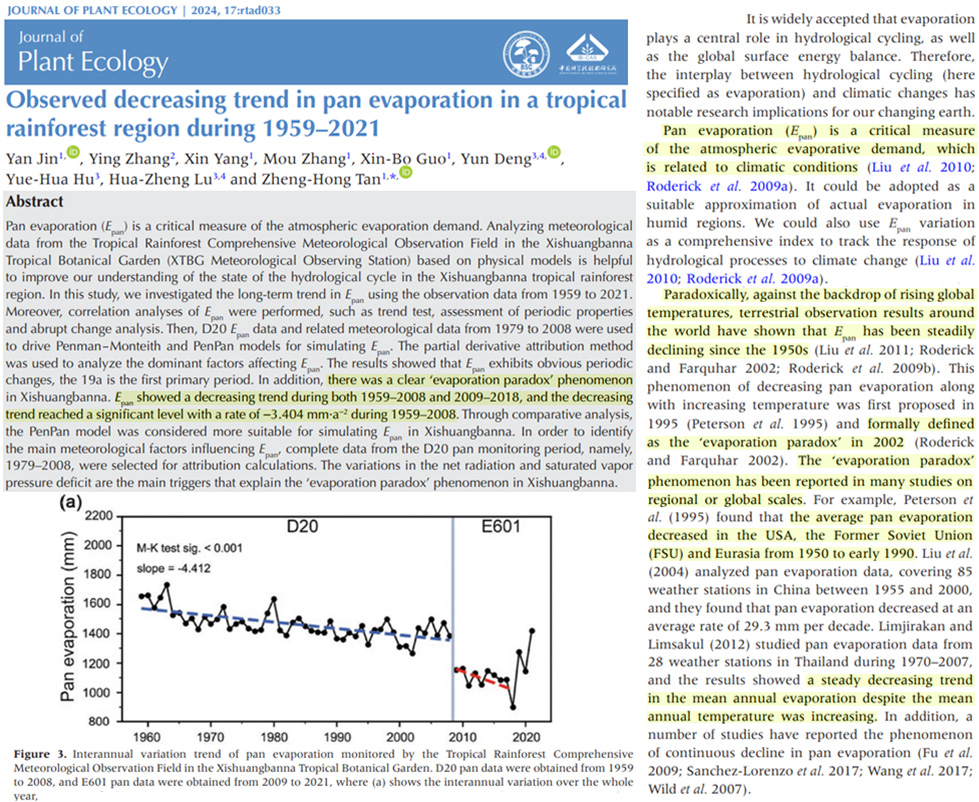Evaporation is supposed to increase with warming. But, per a new study (Jin et al., 2024), “observation results around the world have shown that evaporation has been steadily declining since the 1950s.” This is referred to as the anthropogenic global warming “evaporation paradox” problem, where models and assumptions are contradicted by observations.
According to the IPCC (AR6) and the most seminal paper on the subject (Trenberth, 2011, with 3800 citations), “anthropogenic forcings will drive an increase in global mean evaporation over most oceanic areas (high confidence),” as “increased heating leads to greater evaporation.”

Image Source: IPCC, 2021 (AR6), Trenberth, 2011
But new paper once again points out that observations conflict with the anthropogenic global warming narrative.
“Paradoxically, against the backdrop of rising global temperatures, terrestrial observation results around the world have shown that Epan has been steadily declining since the 1950s…”
“The ‘evaporation paradox’ phenomenon has been reported in many studies on regional or global scales.”
The authors acknowledge it is “widely proposed” there will be “increased evaporation in open water bodies” with warming. So their results, which show declining evaporation since the 1950s, may “seem surprising.”
“At first glance, these results may seem surprising, since the near-surface air temperature has been rising, and it is widely proposed that warming climate will make the air drier and promote the hydrological cycle, which will lead to increased evaporation in open water bodies, including pan evaporators.”
If it can indeed be established that evaporation increases with warming, and, simultaneously, evaporation trends can be shown to be declining, at what point do we question if there has indeed been sufficiently significant warming in the regions where evaporation is declining? Why is referring to these trends as a surprising “paradox” that can perhaps be explained away with more assumptions the better option? 





Maybe cooking the data is a good answer to the paradox…
Evaporation is proportional to the amount of sunlight acting on the body of water. Temperature currently has nothing to do with it as we are nowhere near boiling point (despite what some alarmists say).
That problem can easily be fixed with a drop of homogenization.
Just like they do with temperature.
Then the narrative can carry on, unabated.
Wrong, but unabated.
Wouldn’t evaporation also be dependent on the moisture content of the air? If the air was warmer but at the same time more humid, would that not account for part of the discrepancy?
Feynman describes it succinctly here:
https://www.youtube.com/watch?v=IcMJSVBnqYA (Richard Feynman, When theory disagrees with experiment.)
If results contradict theory, then the theory is WRONG – period, no exceptions, no paradox.
[…] – New Study Unveils Global Warming’s 65-Year-Old ‘Evaporation Paradox’ Problem […]
Better to create at the same Time a TAX for Evaporation and another for Condensation… CLIMATE CHANGE problem solved.
[…] From NoTricksZone […]
[…] New Study Unveils Global Warming’s 65-Year-Old ‘Evaporation Paradox’ Problem […]